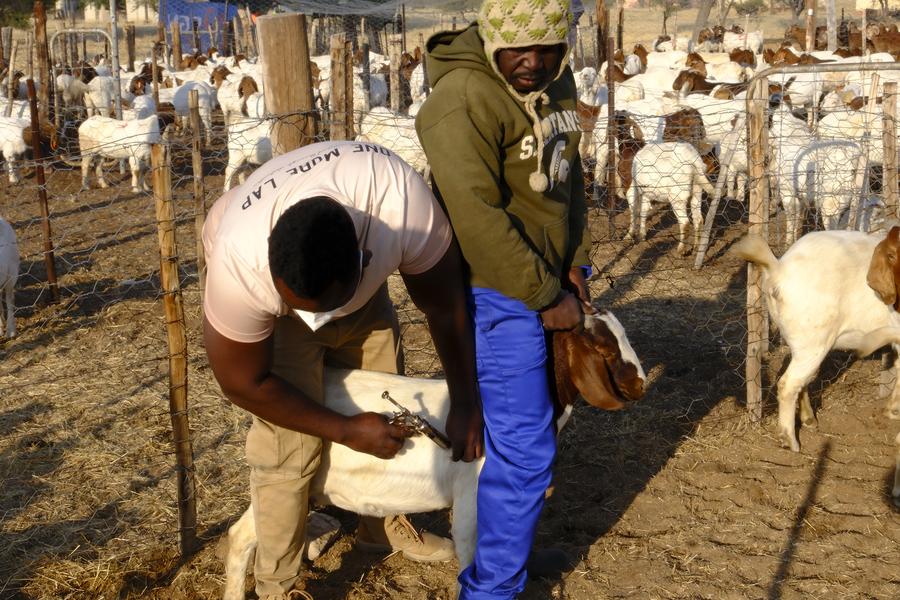The Hope Farm Project has officially launched in Usakos, Namibia, with the goal of empowering women and youth through sustainable agriculture. By the end of 2025, the initiative is expected to distribute 1,000 goats and sheep to local farmers, offering both a livelihood and a path toward self-reliance for low-income communities.
During the launch event on July 26, 630 animals were handed over to the first group of 30 farmers each receiving 20 ewes and one ram. The project includes much more than just livestock distribution. Participants benefit from training sessions, experience-sharing platforms, veterinary care, vaccinations, and access to markets ensuring that farmers have the knowledge and tools they need to succeed.
One of the standout features of the program is its revolving model. After 15 months, farmers are required to return 10 young animals, which will be redistributed to the next cohort of beneficiaries. This approach ensures sustainability and widens the impact, enabling more households to benefit over time.
Funded with an investment of 3 million Namibian dollars, the project is jointly supported by a public-private partnership involving Namibia’s agriculture ministry and a corporate foundation. It builds on ongoing national programs designed to improve food security and create rural employment through small stock farming.
For local farmer Lena Gauses, the project is personal and transformative. Raised in Usakos, she sees her return to farming as a way to reconnect with her family’s history while inspiring younger generations to see agriculture as a viable career. Her dream is to grow her flock, create jobs, and revitalize farming in her community.
The project comes at a critical time. Recent droughts have decimated livestock populations, leaving many farmers without a sustainable income. Beneficiaries, like 32-year-old Ronald Kahoro, see the project as a lifeline and are committed to sharing its benefits with others in the community.
With a special emphasis on youth and women, the Hope Farm Project aims to drive inclusive growth and support Namibia’s broader development goals. By empowering emerging farmers, it contributes to a more resilient agricultural sector—one rooted in self-sufficiency, community collaboration, and long-term sustainability.

